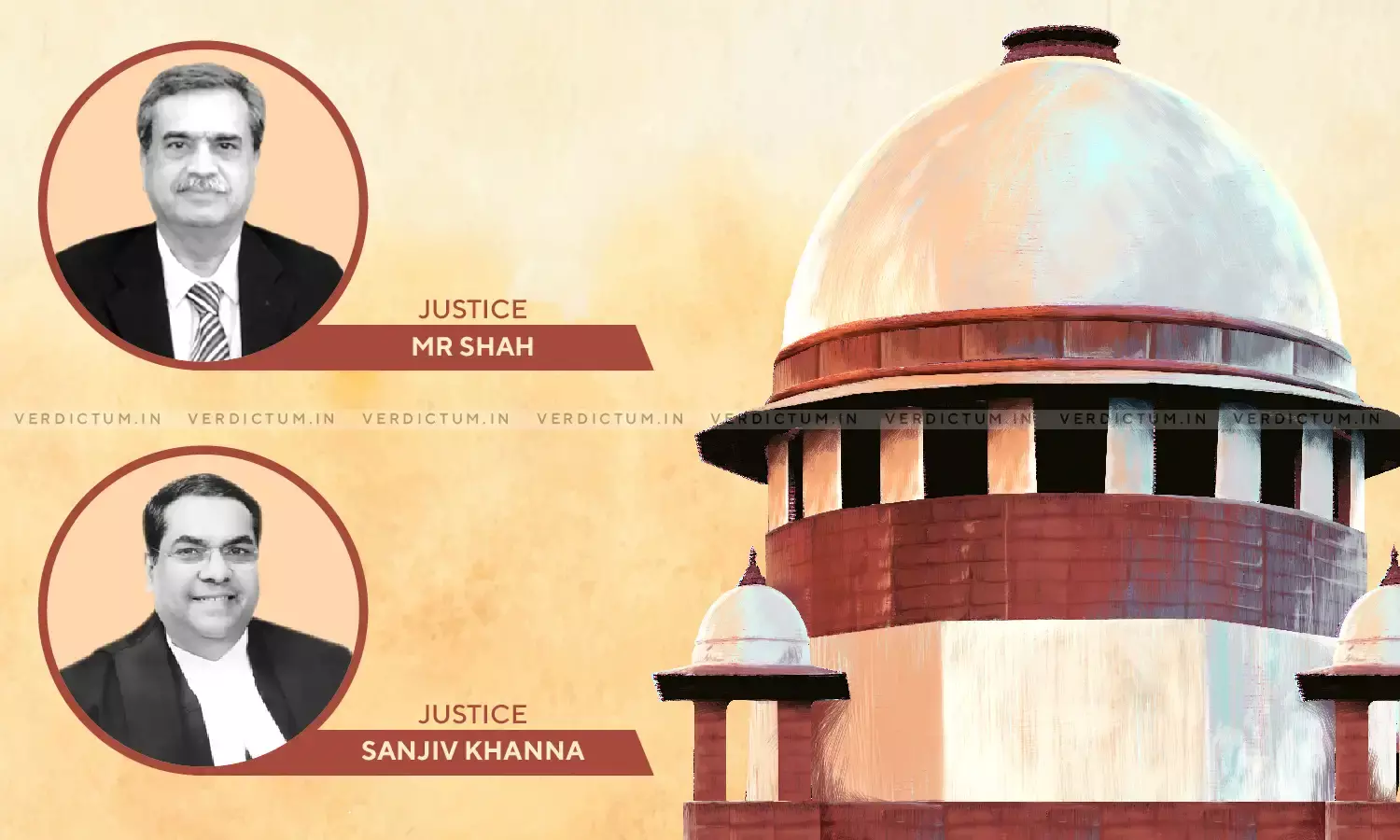Section 12 Of IBC - Delay In Completing Resolution Process Defeats The Object Of Providing Time Limit Under The Code – Supreme Court

A two-judge Bench of Justice MR Shah and Justice Sanjiv Khanna has held that the entire resolution process has to be completed within the period stipulated under Section 12 of the Insolvency and Bankruptcy Code, 2016 and any deviation would defeat the object and purpose of providing such limit.
Solicitor General of India Mr. Tushar Mehta appeared for the Appellant during the proceedings before the Court.
An appeal was preferred by the Committee of Creditors (CoC) of Amtek Auto Limited before the Supreme Court assailing the judgment of the National Company Law Appellate Tribunal (NCLAT). The NCLAT had rejected the appeal of the Appellant-CoC praying for exclusion of time under the provisions of IBC and had ordered the liquidation of the Corporate Debtor.
In this case, an application was filed under Section 60(5) read with Section 74(3) by the financial creditors (CoC) before the NCLT and it was prayed to reinstate the CoC and the Resolution Professional to ensure that Corporate Debtor remains as a going concern. It was further prayed that 90 days should be granted to the professional to make another attempt (after a failed attempt) for a fresh resolution process rather than forcing the Corporate Debtor to go into liquidation.
However, NCLT rejected such a prayer of the Appellant and directed the reinstatement of COC for reconsideration of the Resolution Plan submitted by Deccan Value Investor (DVI).
The Appellant contended before the Supreme Court that the Corporate Debtor was a financially viable entity and there was enough interest in the market for the submission of a resolution plan for the Corporate Debtor.
It was prayed that the period be extended in proceeding with the CIR process.
The Supreme Court had earlier permitted the resolution professional to invite fresh offers within a period of 21 days. This was followed by DVI submitting a fresh resolution plan which was approved by the COC by a 70% majority.
It was contended by the Appellant that DVI was committed to its approved resolution plan and was taking active steps for its implementation.
Further, it was argued that the Corporate Debtor has to make arrangements for the transfer of Rs. 500 Crores to the financial creditors/lenders of the Corporate Debtor. Also, the obligations were to be performed mutually and simultaneously by both parties.
The Apex Court noted that the resolution plan had to be implemented at the earliest as that is a mandate under the IBC.
Further, the Court held, "The entire resolution process has to be completed within the period stipulated under Section 12 of the IBC and any deviation would defeat the object and purpose of providing such time limit. However, by earlier order, the time limit has been condoned in view of the various litigations pending between the parties and in the peculiar facts and circumstances of the case."
"Therefore, any further delay in implementation of the approved resolution plan submitted by DVI which as such has been approved by the adjudicating authority in the month of July, 2020 and even the appeal against the same has been dismissed subsequently, any further delay would defeat the very object and purpose of providing specific time limit for completion of the insolvency resolution process, as mandated under Section 12 of the IBC," the Bench opined.
The Court further directed the parties to complete the implementation of the approved resolution plan be implemented within a period of four weeks.
Additionally, the Bench directed that the amount of Rs. 500 Crores which was deposited by DVI – successful resolution applicant be transferred to the respective lenders/financial creditors as per the approved resolution plan and/or as mutually agreed.
"Any lapse on the part of any of the parties in implementing the approved resolution plan with the time stipulated hereinabove shall be viewed very seriously," the Court held.
Accordingly, the Court disposed of the appeal.
Click here to read/download the Judgment

